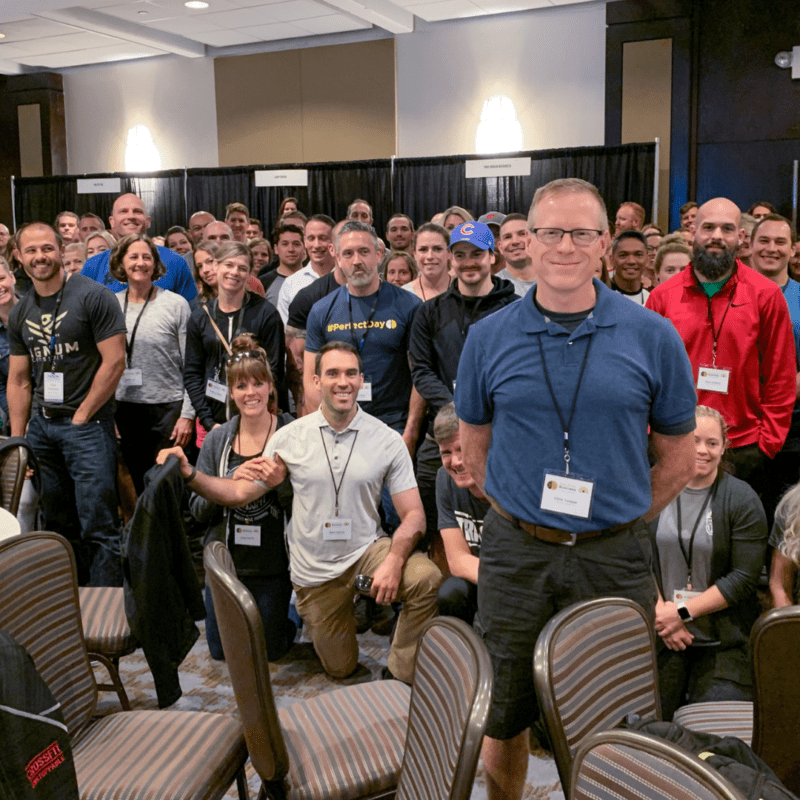Two weeks ago, I flew to Boston to meet gym owners. I shared a meal with a few of them, and sat at a boardroom table with others.
My role was volunteer “broker”–an unbiased intermediary to help one gym purchase another in good faith. I wasn’t paid a dime; I just wanted to make sure everyone got the best possible outcome.
A few good opportunities were presented: some gym owners could keep a share of their gym, remain on as a paid coach; and receive an upfront payment for the value of their gym. The offer was a real gift for many of them. They won, in the end.
Many aren’t so lucky.
Every day, I take at least one phone call–again, unpaid–from a gym owner who needs help. In almost every case, the owner is a coach. Usually they’re a great coach. It’s not just the bad coaches whose businesses are failing.
Here are a few things the “triage” callers have in common:
- They have members, but not income. Strong gyms break even at 30-50 members. Weak gyms require more members to break even. Some of these poor folks are serving over 70 people and still not taking a paycheck.
- Their coaches don’t earn more than they’re paid. Either the gym has a smattering of volunteers trading for membership, or one salaried “main guy” earning more than the owner. But the coaches don’t generate revenue; they simply fulfill service obligations.
- They’re scared of losing members to a cheaper gym nearby. In many cases, this has already happened.
- They have good ideas, but no time to execute, and…
- They think 10 more clients will buy them that time.
This is the crux: 10 more clients won’t buy you anything.
Sitting on a park bench in 2009, I asked myself, “If I don’t change, will things get better on their own?” It didn’t seem likely. The next question that occurred to me was, “If I do nothing, will they get worse?” That scared me a bit.
A friend offered to link me with a mentor. The full story is in my first book, except for this part.
I went into the first meeting — it was free — thinking Denis would give me some sort of silver marketing bullet. Instead, he had me do the Roles and Tasks exercise that’s now part of our mentoring program. Then he said, “Finish this over the weekend. And before you leave, I need you to give me a check for five hundred dollars.”
I said, “I don’t have five hundred dollars.”
He said, “I know.”
I wrote the check knowing it would probably bounce if he cashed it right away. Then I spent my whole weekend writing roles and tasks and the skeleton of a staff handbook. It sucked.
On Monday, I gave the staff new contracts and handbooks. On Tuesday, they showed up early. Wearing staff shirts. And left the gym clean. That freed up about an hour of my time. So I started working on our rates. I raised them…and no one quit.
After a couple of weeks, I called Denis and begged him to cash the check. “Do it quick,” I said, “I’m not sure how long this run of good luck will last.”
He laughed and said, “We’ll talk about luck next time.”
This is the experience I try to give everyone, but I know it’s tougher when you’re miles away. So start with this: read Two-Brain Business (I recommend 2.0, actually,) or buy The E-Myth and start there (it’s just way less fun.)
By the time you finish, you’ll be able to pay for mentoring. The books are the tip of the iceberg, but they’ll easily make you the money to pay for REAL mentoring. That’s why I wrote them.
GOOD gyms fail not because their coaches are bad; NOT because their bathrooms aren’t pristine; NOT because they’re not “pursuing excellence.” They fail because they don’t have a plan. They might have great intentions and lots of hustle. They might have great coffee. But without a plan, you won’t get off that park bench.
Want to check our progress? Try our FREE Gym Checkup HERE.
